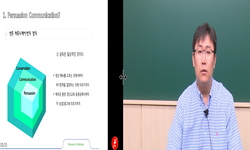Entrepreneurship has been the center of a worldwide phenomenon as it has contributed a lot in the economy. The researcher is trying to acknowledge the interest of Indonesian women to build their own businesses. The aim of this research is to see how e...
http://chineseinput.net/에서 pinyin(병음)방식으로 중국어를 변환할 수 있습니다.
변환된 중국어를 복사하여 사용하시면 됩니다.
- 中文 을 입력하시려면 zhongwen을 입력하시고 space를누르시면됩니다.
- 北京 을 입력하시려면 beijing을 입력하시고 space를 누르시면 됩니다.
https://www.riss.kr/link?id=A107108964
-
저자
HONGDIYANTO, Charly ; TEOFILUS, Teofilus (Universitas Ciputra) ; SUTRISNO, Timotius F.C.W. ; DEWANTI, Putu Sonnia Paramaesya

- 발행기관
- 학술지명
- 권호사항
-
발행연도
2020
-
작성언어
English
- 주제어
-
등재정보
KCI등재,SCOPUS
-
자료형태
학술저널
-
수록면
573-582(10쪽)
-
KCI 피인용횟수
0
- 제공처
-
0
상세조회 -
0
다운로드
부가정보
다국어 초록 (Multilingual Abstract)
Entrepreneurship has been the center of a worldwide phenomenon as it has contributed a lot in the economy. The researcher is trying to acknowledge the interest of Indonesian women to build their own businesses. The aim of this research is to see how entrepreneurial learning could influence Indonesian women to grow interest in doing entrepreneurial activity, with the help of three mediations: attitude toward entrepreneurship, subjective norms, and perceived behavioral control. The research will use quantitative method and SmartPLS 3.0 to support the statistical data. The respondents are Indonesian women ranging around 17 years old and above who have had the experienced entrepreneurship learning in educational institutions. To show a more accurate result, purposive sampling will be used where it is very objective and selective to help the researcher in providing the justification to make generalizations from the investigated sample from a total of 149 respondents from various regions in Indonesia. The findings on this research are entrepreneurial learning is influencing the entrepreneurial intention of Indonesian women with the help of two mediations, which are attitude toward entrepreneurship and perceived behavioral control. Subjective norms is found has no significant influence on growing the entrepreneurial intention of Indonesian women.
참고문헌 (Reference)
1 Garson, G. D., "Validity & Realibility" Statistical Associates Publishing 2017
2 Kourosh Esfandiar, "Understanding entrepreneurial intentions: A developed integrated structural model approach" Elsevier BV 94 : 172-182, 2019
3 Sidratulmunthah, "Towards nurturing the entrepreneurial intentions of neglected female business students of Pakistan through proactive personality, self-efficacy and university support factors" Emerald 12 (12): 363-378, 2018
4 Ajzen, I., "The theory of planned behavior" 50 (50): 179-211, 1991
5 Kariv, D., "The role of entrepreneurial education and support in business growth intentions : the case of Canadian entrepreneurs" 31 (31): 433-460, 2019
6 Witold Nowiński, "The impact of entrepreneurship education, entrepreneurial self-efficacy and gender on entrepreneurial intentions of university students in the Visegrad countries" Informa UK Limited 44 (44): 361-379, 2017
7 Fayolle, A., "The future of research on entrepreneurial intentions" 67 (67): 663-666, 2014
8 Phan Tan Luc, "The Relationship between Perceived Access to Finance and Social Entrepreneurship Intentions among University Students in Vietnam" 한국유통과학회 5 (5): 63-72, 2018
9 Fini, R., "The Determinants of Corporate Entrepreneurial Intention within Small and Newly Established Firms" 36 (36): 387-414, 2012
10 Lind, D. A., "Statistical Techniques in Business and Economics" McGraw-Hill/Irwin 2017
1 Garson, G. D., "Validity & Realibility" Statistical Associates Publishing 2017
2 Kourosh Esfandiar, "Understanding entrepreneurial intentions: A developed integrated structural model approach" Elsevier BV 94 : 172-182, 2019
3 Sidratulmunthah, "Towards nurturing the entrepreneurial intentions of neglected female business students of Pakistan through proactive personality, self-efficacy and university support factors" Emerald 12 (12): 363-378, 2018
4 Ajzen, I., "The theory of planned behavior" 50 (50): 179-211, 1991
5 Kariv, D., "The role of entrepreneurial education and support in business growth intentions : the case of Canadian entrepreneurs" 31 (31): 433-460, 2019
6 Witold Nowiński, "The impact of entrepreneurship education, entrepreneurial self-efficacy and gender on entrepreneurial intentions of university students in the Visegrad countries" Informa UK Limited 44 (44): 361-379, 2017
7 Fayolle, A., "The future of research on entrepreneurial intentions" 67 (67): 663-666, 2014
8 Phan Tan Luc, "The Relationship between Perceived Access to Finance and Social Entrepreneurship Intentions among University Students in Vietnam" 한국유통과학회 5 (5): 63-72, 2018
9 Fini, R., "The Determinants of Corporate Entrepreneurial Intention within Small and Newly Established Firms" 36 (36): 387-414, 2012
10 Lind, D. A., "Statistical Techniques in Business and Economics" McGraw-Hill/Irwin 2017
11 Ajzen, I., "Perceived behavioral control, self-efficacy, locus of control, and the theory of planned behavior" 32 (32): 665-683, 2002
12 Hair, J. F., "Partial least squares structural equation modeling-based discrete choice modeling : an illustration in modeling retailer choice" 12 : 115-142, 2019
13 Phan Tan Luc, "Outcome Expectations and Social Entrepreneurial Intention: Integration of Planned Behavior and Social Cognitive Career Theory" 한국유통과학회 7 (7): 399-407, 2020
14 Muhammad Shoaib Farooq, "Modelling the significance of social support and entrepreneurial skills for determining entrepreneurial behaviour of individuals" Emerald 14 (14): 242-266, 2018
15 Diana Romero, "Methodologic approach to sampling and field-based data collection for a large-scale in-depth interview study: The Social Position and Family Formation (SPAFF) project" Public Library of Science (PLoS) 14 (14): e0210776-, 2019
16 Kanya, N., "Learning of Entrepreneuship and Entrepreneurship Practices Againts Business Interest" 4 (4): 60-71, 2020
17 Selda Örs Özdil, "Investigation of the Mediator Variable Effect Using BK, Sobel and Bootstrap Methods (Mathematical Literacy Case)" Pen Academic Publishing 15 (15): 30-43, 2019
18 Feng Zhang, "How entrepreneurial learning impacts one’s intention towards entrepreneurship" Emerald 13 (13): 146-170, 2019
19 Ferri, L., "Exploring the Entrepreneurial Intention of Female Students in Italy" 4 (4): 27-, 2018
20 Gabriela Boldureanu, "Entrepreneurship Education through Successful Entrepreneurial Models in Higher Education Institutions" MDPI AG 12 (12): 1267-, 2020
21 Vimolwan Yukongdi, "Entrepreneurial intention: a study of individual, situational and gender differences" Emerald 24 (24): 333-352, 2017
22 Hong Lu, "Entrepreneurial Intention of Two Patterns of Planned Behaviour and Alertness: Empirical Evidence in China" 한국유통과학회 5 (5): 63-72, 2018
23 Linan, F., "Development and Cross-Cultural application of a specific instrument to measure entrepreneurial intentions" 33 (33): 593-617, 2009
24 Schlaegel, C., "Determinants of Entrepreneurial Intent : A Meta–Analytic Test and Integration of Competing Models" 38 (38): 291-332, 2014
25 Thi Hong Viet BUI, "Determinants Influencing Entrepreneurial Intention among Undergraduates in Universities of Vietnam" 한국유통과학회 7 (7): 369-378, 2020
26 Hongdiyanto, C., "Attribute in Designing Entrepreneurial Learning Model in Higher Education" 7 (7): 1200-1210, 2017
27 Vasiliki Vamvaka, "Attitude toward entrepreneurship, perceived behavioral control, and entrepreneurial intention: dimensionality, structural relationships, and gender differences" Springer Science and Business Media LLC 9 (9): 9-15, 2020
28 M. Entrialgo, "Are the Intentions to Entrepreneurship of Men and Women Shaped Differently? The Impact of Entrepreneurial Role-Model Exposure and Entrepreneurship Education" Walter de Gruyter GmbH 8 (8): 1-10, 2017
29 Hair, J. F., "A Primer on Partial Least Squares Structural Equation Modeling(PLS-SEM)" Sage Publications 2013
30 Hongdiyanto, C., "A Comparison of Entrepreneurial Learning Education" 21 (21): 65-75, 2017
동일학술지(권/호) 다른 논문
-
China-ASEAN Trade Relations: A Study of Determinants and Potentials
- Korea Distribution Science Association
- TRAN, Hiep Xuan
- 2020
- KCI등재,SCOPUS
-
Impulse Response of Inflation to Economic Growth Dynamics: VAR Model Analysis
- Korea Distribution Science Association
- DINH, Doan Van
- 2020
- KCI등재,SCOPUS
-
Debt Finance among Vietnamese Enterprises: The Influence of Managers' Gender
- Korea Distribution Science Association
- HO, Hoang Lan
- 2020
- KCI등재,SCOPUS
-
FDI, Corruption and Development of Public Service Sectors in ASEAN Countries
- Korea Distribution Science Association
- PHAN, Nghi Huu
- 2020
- KCI등재,SCOPUS






 ScienceON
ScienceON 스콜라
스콜라






